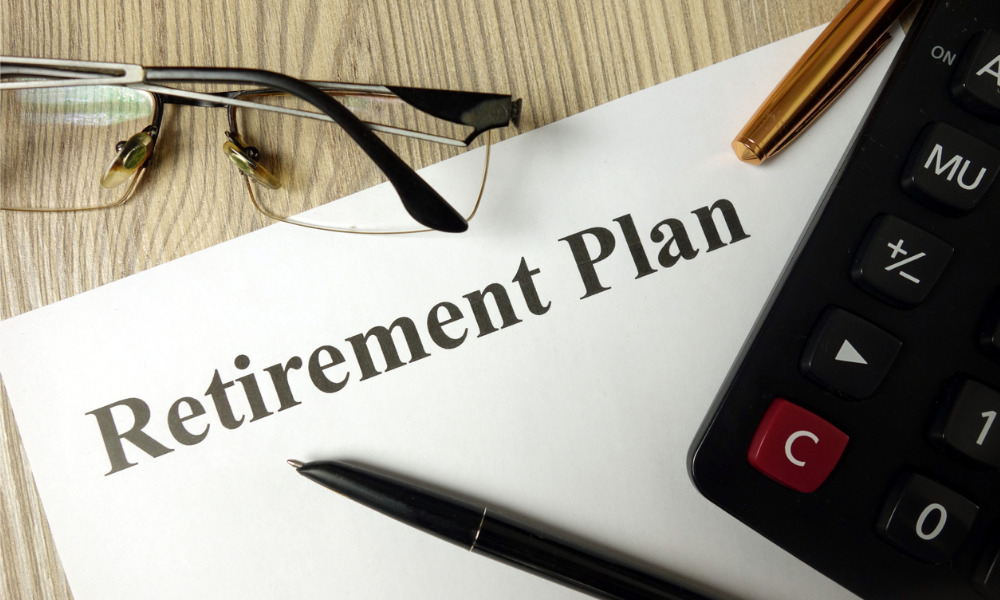COVID is causing Canadians to rethink when and how they'll retire, and how much they need to save for it

Canadians are rethinking when and how they’ll retire, and how much they need to save for it, according to a new RBC Retirement Myths & Realities Poll conducted during the pandemic.
“One of the areas we found surprising was that upwards of 18% of people concluded, as a result of their thinking during the pandemic, that they were going to defer their retirements,” Rick Lowes, RBC’s Vice-president Retirement Strategy, told WP. “We saw a relationship with those provinces that may have been hardest hit during the pandemic, from an economic standpoint, such as Alberta, where the likelihood of deferral was significantly higher.”
Ipsos conducted the biennial poll online with 2,200 Canadians aged 50 and over between May 21 and June 1. Half of the respondents were pre-retirement and half were retired.
It noted that while 18% of respondents said they’d now be retiring later than anticipated pre-pandemic, that response was highest – 33% – in Alberta.
While the poll didn’t do a deep dive into why people are planning to defer retirement, Lowes said it looked like “they weren’t necessarily feeling ready from a financial standpoint". That could be because of their investment portfolios or they were looking at how to finance their retirement plans.
RBC’s poll showed that those approaching retirement were also resetting their retirement savings goals. Those with more than $100,000 in investable assets now were estimating they need an average of $1 million – or about $50,000 more than RBC’s 2019 poll showed. About three-quarters of those, however, were falling short of their goal by an average of almost $300,000. Those with less than $100,000 in investable assets had also lowered their retirement savings goal – from $574,354 in 2019 to $533,153 in 2021 – but had a much larger savings gap of $472,991.
To help bridge their retirement shortfall, about one-third of respondents said they’d stay in their current home and live more frugally, a third said they’d return to paid work, and up to one-third said they’d downsize or move. Only 5% said they’d ask family for help.
Lowes noted that what was interesting about the gap, though, was that most people set their retirement thresholds without developing a financial plan with an advisor who could help them consider both their retirement lifestyle expectations and what they’d need to finance those.
“Many have heard this rule of thumb around a million dollars or 70% of your pre-retirement income, but the reality is that many people don’t actually require those levels,” he said. If they could discuss their expectations with an advisor, he added, “it could really reduce the gap between what they’ve saved and what they need, and make that more achievable for them with the remaining years that they have to continue to increase what they contribute to their investment.”
RBC’s poll also showed some gender differences – with 20% of women versus 15% of men saying they would delay retirement, and 23% of women versus 20% of men saying they would outlive their retirement saving by 10 years.
Lowes attributed those differences to women’s longer life expectancy, and thus longer retirement window, different earning rates that may have created a bigger gap between what they need to, and have, saved, and the fact that some may have lost a life partner.
Something else that surprised Lowes was the fact that the poll also showed that 22% of the respondents were thinking about where they want to live when retired, and – given what occurred in the pandemic – 20% said that they didn’t want it to be in a retirement home.
Surprisingly, the poll also reaffirmed that almost half of respondents don’t have a financial plan – only 20% had created a formal plan with an advisor. Lowes said RBC advisors’ client discussions show many feel they aren’t earning enough, or have saved enough, to get financial advice or develop a plan.
“Ideally, we would love to have them come in and speak with an advisor and really take time to put that plan in place, so they have that confidence and comfort going into their retirement years,” he said. “So, we want to continue to get the message out there that planning isn’t exclusive to anyone. We really want to help Canadians through this process because we’d obviously love to see them take more advantage of what’s available for them.”
While RBC continues to urge its advisors to keep raising awareness and encouraging clients to use its new capabilities, such as its MyAdvisor digital system – which it plans to enhance by year’s end – it wants people to know that talking to an advisor can help them make critical decisions, such as when to take government pensions, how to stretch investments and savings, and how to withdraw those to minimize tax.
But, Lowes also encouraged all advisors to keep evangelizing about the fact that they, and their services, are accessible to everyone.
“Continuing to beat the drum on awareness and availability is the one thing that I’d encourage all advisors across Canada to do,” he said. “Keep raising awareness of the importance of taking those steps to put a plan in place, so they can be confident in their future and make that big transition into retirement.”



